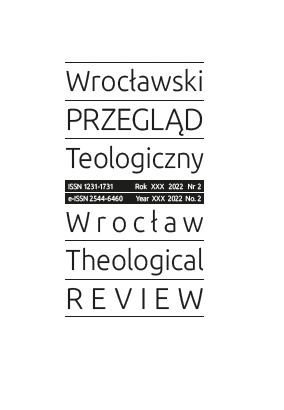Różnice w recepcji jednostek przepowiadania na przykładzie homilii wygłoszonej przez ks. Mirosława Drzewieckiego 13 stycznia 1982 roku we wrocławskiej katedrze
Differences in the Reception of Preaching Units on the Example of the Homily Delivered by Fr. Mirosław Drzewiecki on January 13, 1982 in the Wrocław Cathedral
Author(s): Renata Duda, Rafał KowalskiSubject(s): Christian Theology and Religion, Theology and Religion, Pastoral Theology
Published by: Papieski Wydział Teologiczny
Keywords: martial law; homily; sermon; listener; reception of the spoken text; interpretation of the sermon
Summary/Abstract: The fundamental question that the text raises is: how did the officers of the Police and the Security Service of the People’s Republic of Poland accept and interpret homilies delivered during church services, at the time of martial law imposed by the communist authorities in Poland on December 13, 1981 and lifted on July 22, 1983. The authors base their argument on the homily delivered by Wrocław academic priest Mirosław Drzewiecki in Wrocław Cathedral on January 13, 1982, which led to the accusation of the priest of the crime of disseminating false information that could cause public unrest or riots. On the basis of previously unpublished materials, collected in the archives of the Institute of National Remembrance, we learn about the vision outlined by the priest himself and the goals set by him. We are familiarized with the reception of the content of the homily by the participants of the Eucharist (including another clergyman and a teenage girl) who were interrogated as witnesses testifying in the case against Rev. Drzewiecki, to finally, on the basis of reports and questions posed to the clergyman and witnesses, and we learn about the reception of the content heard in the church by the functionaries of the law enforcement ministries of the communist authorities. The authors try to draw conclusions of a more general nature: how can people who are unfavorably disposed to the Catholic Church interpret the texts preached by the clergy during the services, and whether this negative attitude in any way obscures the comprehension of the message.
Journal: Wrocławski Przegląd Teologiczny
- Issue Year: 30/2022
- Issue No: 2
- Page Range: 171-194
- Page Count: 25
- Language: Polish

